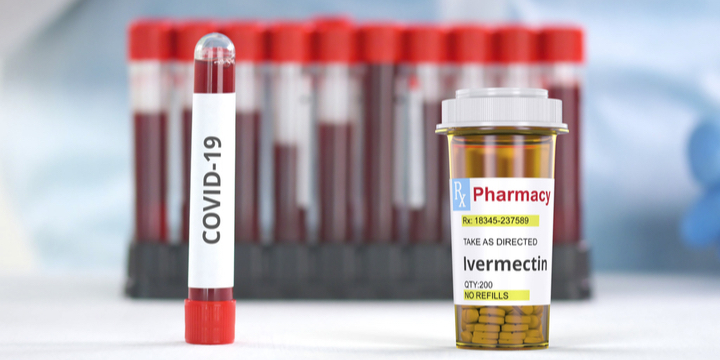Ivermectin is a drug – for veterinary and human use – used against parasites, such as scabies, river blindness (onchocerciasis) or even lice.
However, while an Australian study published in April 2020 observed an in vitro (laboratory) efficacy of ivermectin on the Sars-CoV-2 virus, its efficacy in humans has not yet been demonstrated. In fact, there is not sufficiently strong scientific evidence, the trials being limited in scope and with many biases.
And very often, the results in vitro cannot be transposed to humans, in particular because we cannot administer the same drug concentrations.
To read also: True / False: were deaths really caused by the anti-covid vaccine?
Fake-news on social networks
“The ‘miracle drug’ ivermectin. It is not toxic. I think it is a gift from God to save the human race from Covid-19”, says for example this Facebook post in Korean, while we find publications in Brazil, South Africa …
In France, in mid-December, a website promoting so-called “alternative” therapies and regularly relaying infox, wrongly asserted that “all the scientific evidence shows the effectiveness of ivermectin”.
Read also: True / False: does nicotine protect against covid?
Same rhetoric as for hydroxychloroquine
Inexpensive, already often used especially in certain countries with weakened health systems, ivermectin shares several points in common with hydroxychloroquine. This other parasiticide is defended tooth and nail by certain doctors and political figures. Yet its effectiveness has not been proven either and a large clinical trial has even concluded that there are no effects.
Very often, we find the same rhetoric, according to which they are deliberately ignored by the authorities because they are not profitable for the pharmaceutical industry. On the France Soir site, a text also intends to denounce the “scandalous indifference to the proven effectiveness of ivermectin” against the Covid.
And the voices that promote it today are partly the same as those who defended hydroxychloroquine, as, in France, MP Martine Wonner, for example.
To read also: TRUE / FALSE: should we drink toddy to destroy the coronavirus in our body?
Unconvincing scientific data
In fact, “most recent clinical studies (made public) on the subject are inconclusive, the vast majority are either preprints not validated by their peers or, when published, studies with methodological biases making the results difficult. interpretable and do not allow conclusions to be drawn “, summarizes the French Society of Pharmacology and Therapeutics
The American Medicines Agency (FDA), its South African counterpart (SAHPRA) or the Mexican health authorities have also publicly stated that ivermectin was not considered an anti-Covid treatment, due to the lack of reliable and solid scientific data.
“Larger randomized trials”
As for Unitaid, an international drug purchasing organization for poor countries which is closely monitoring any potential treatment for the pandemic, it believes that there are “promising preliminary data” but that “we must wait for the results of other tests “before deciding on possible new steps.
“If you want to be 100% sure of the effectiveness of a drug, you need the results of larger, randomized controlled trials” than what is currently available, Professor Kim Woo finally told AFP -joo, professor in the infectious diseases department at Korea University Hospital in Seoul.
 Cherry tomatoes contaminated with salmonella: 92 sick and 1 dead
Cherry tomatoes contaminated with salmonella: 92 sick and 1 dead  A better coaching method can make a person grow
A better coaching method can make a person grow  What is the method to prevent diabetes in children?
What is the method to prevent diabetes in children?  What are the effective factors in causing stomach ulcers?
What are the effective factors in causing stomach ulcers?  Why do embarrassing memories seem to appear at night?
Why do embarrassing memories seem to appear at night?  The amazing link between SARS-CoV-2 infection and newly started diabetes
The amazing link between SARS-CoV-2 infection and newly started diabetes  WHO says monkey pox is not a global emergency right now
WHO says monkey pox is not a global emergency right now  Single cell RNA sequencing uncovers new mechanisms of heart disease
Single cell RNA sequencing uncovers new mechanisms of heart disease  Hepatitis of unknown origin: 3 new deaths and 228 cases worldwide
Hepatitis of unknown origin: 3 new deaths and 228 cases worldwide 